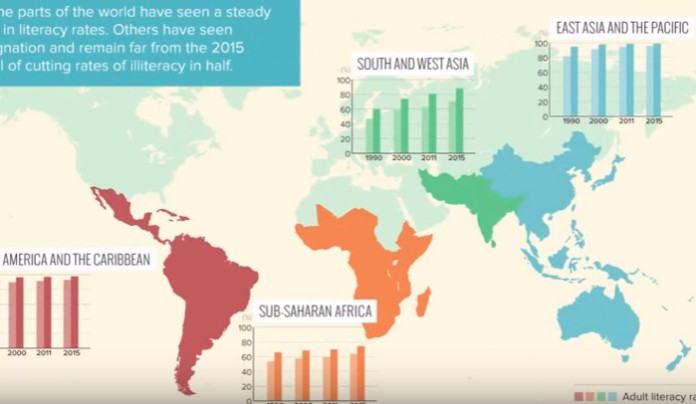Algeria is a country located in the North African continent. Arabic is its official language while French has also been used for commercial transactions and some for educational purposes in universities and colleges. In some areas, Berber is the spoken language in which 99% of its population is Arab-Berber. However, only a few consider themselves as Berber, even if most Algerians are indeed Berbers. The other 1% of the population is identified as European. While 99% of them are Sunni Muslim, 1% are Jewish and Christians.
1. Literacy Rate Facts
Nowadays, Algeria is facing a number of problems. This is due to the growing resentment of the Berber and the pressure for autonomy from the non-Berber government. Likewise, the country must contend with its decaying infrastructure, including the lack of electricity and water for the citizens as well as the unemployment rate.
Obviously, on the basis of adverse trends, the educational system has not been faring well. This is because the illiteracy rate has reached around 30%. The educational system in Algeria historically improved after gaining its independence. In fact, the educational systems have slowly emerged in the 1960s and 70s.
2. Compulsory Education
Algeria has also been into compulsory education which requires children from ages 6 to 17 years old. Nevertheless, their system of education has suffered from many problems, which resulted from the erratic political system that has affected adversely the economic and social growth.
More so, although the primary education has acquired a high rate of enrollment, only 50% of them actually attend secondary school. As a result, only 70% literacy rate has been achieved. In addition, the female population of Algeria lag behind the male in literacy which is about 20 percentage points.
3. Shortage of Teachers
The rapid growth of children’s population that range from 5 to 14 has led to the shortage of teaching staff. This still happened despite the fact that 4.3% of the GDP of the nation has been allocated toward education.
4. Tertiary Education
Algeria has 34 universities in which the well-known and the oldest is the University of Algiers established in 1879 when the French colonized the country. Higher education was influenced then by the Islamic fundamentalists during the 1960s-70s. Nevertheless, their influence has waned by the year 2000. These days, it is only a fringe element Algerian universities and colleges. Moreover, the country has various technical institutions, schools, and religious educational facilities, including those for teacher training.
5. Teacher Education
Preparation for primary school teacher will require students to enroll in educational technology. This lasts for a couple of years, which include coursework in the first year while student teaching in the following year. At the same time, the ministry of education provides students with education to become middle school teachers. Preparation includes middle school training in order to gain teacher certification for the middle school. Meanwhile, preparation for secondary will offer students willing to teach at the secondary level the opportunity to enroll in one of the many teacher colleges and national institutes dedicated for higher education.
Crystal Lombardo is a contributing editor for Vision Launch. Crystal is a seasoned writer and researcher with over 10 years of experience. She has been an editor of three popular blogs that each have had over 500,000 monthly readers.


















